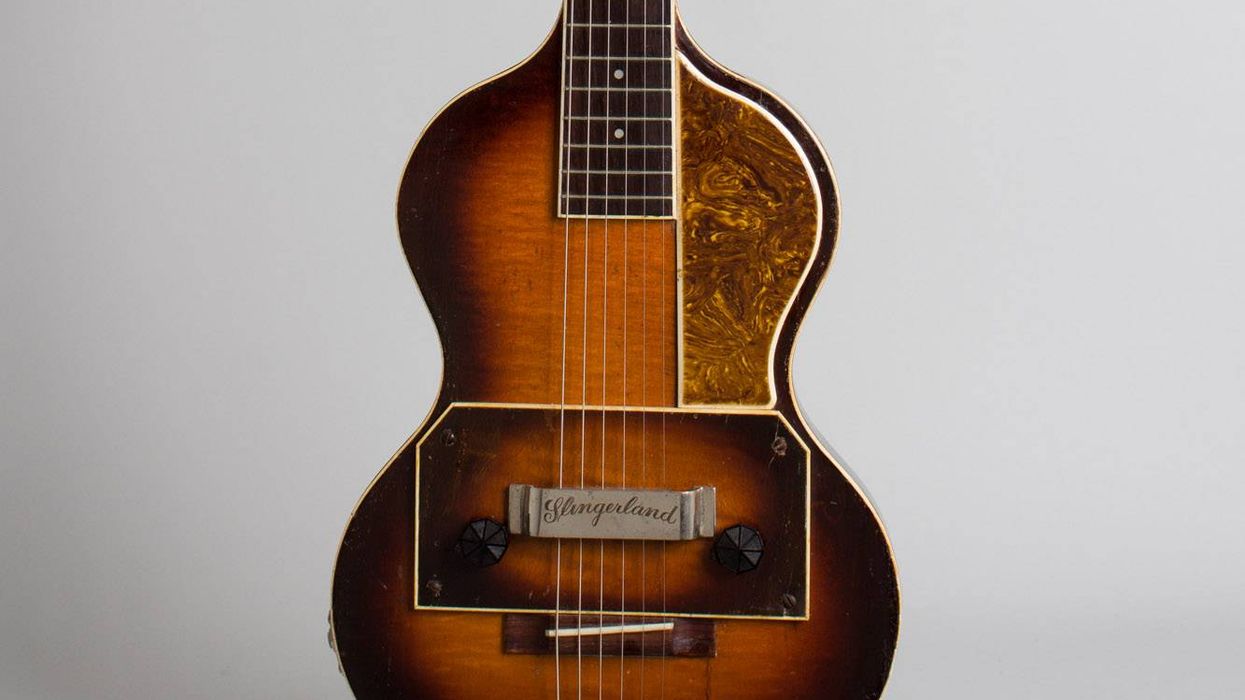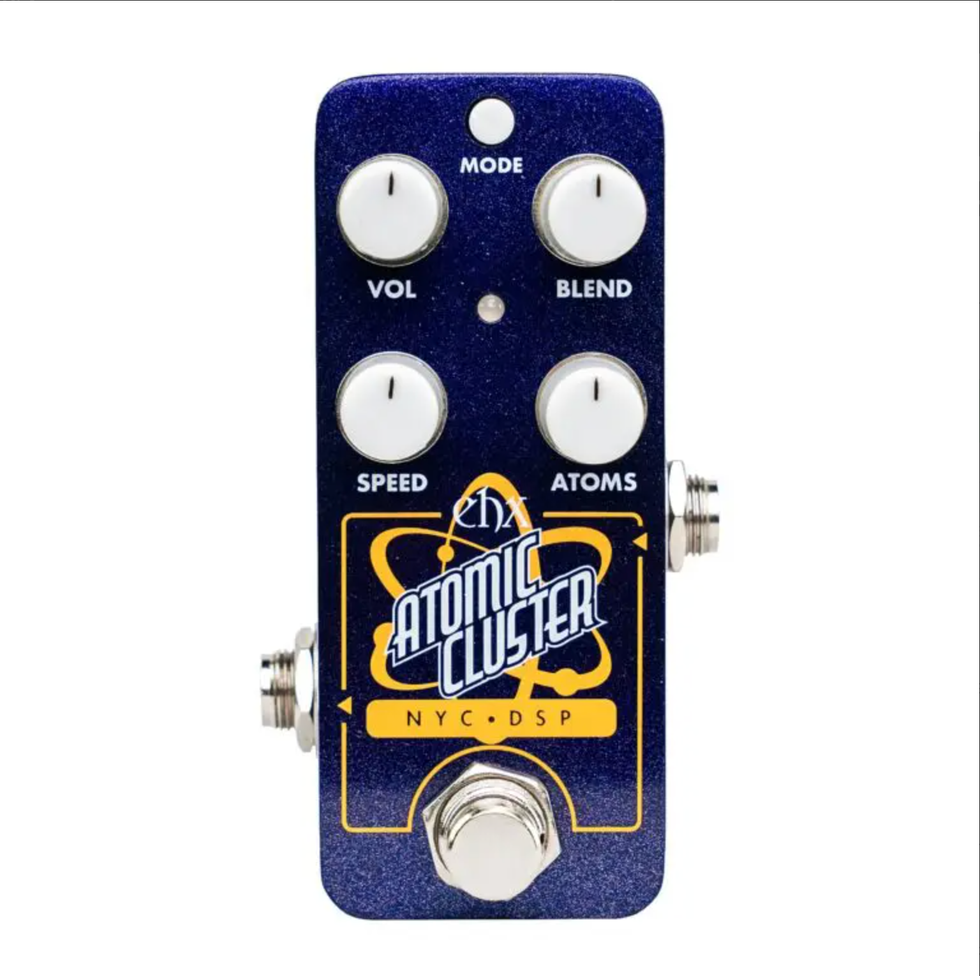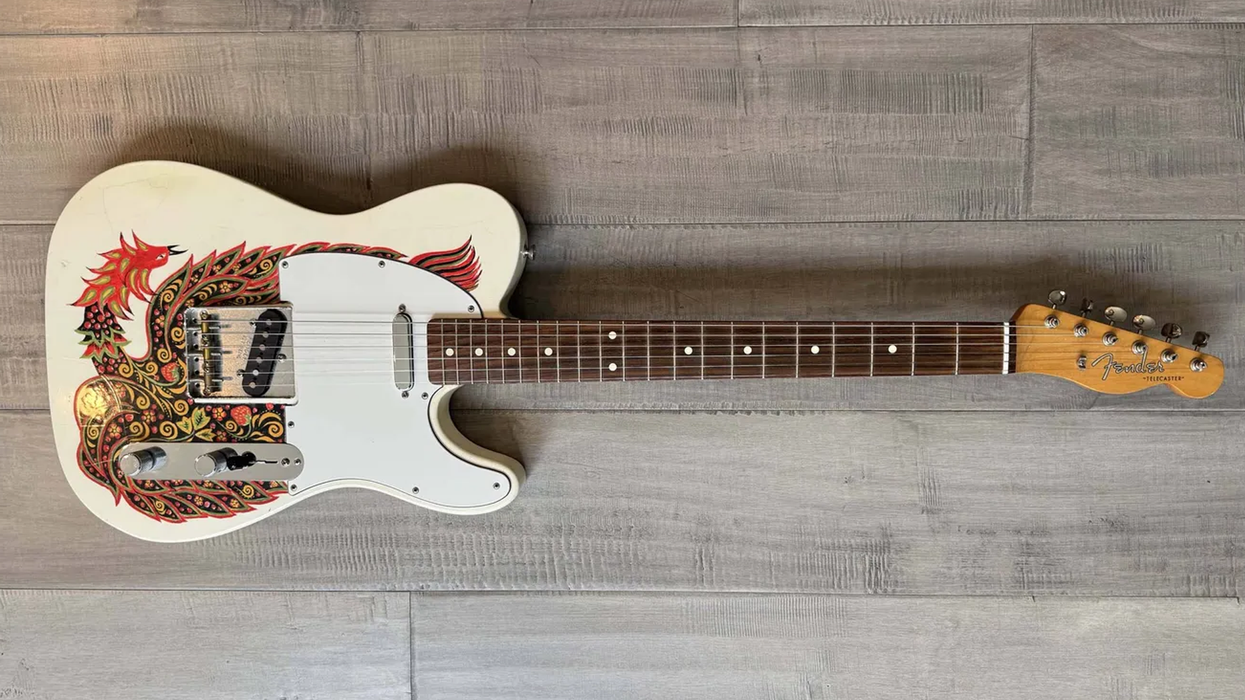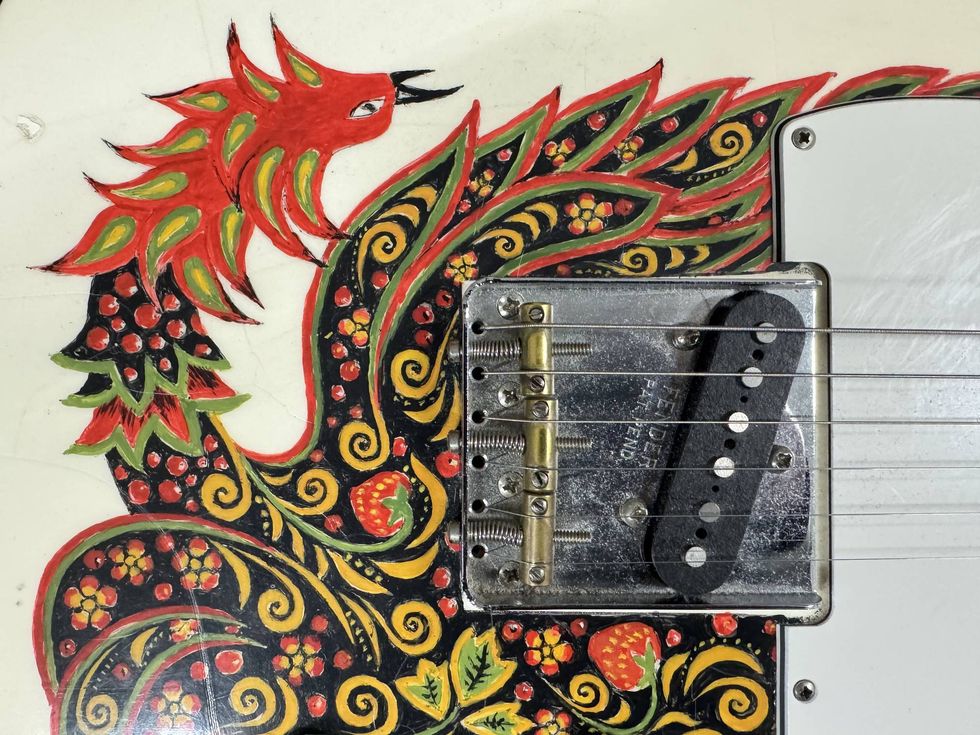By virtue of the fact that you’re reading this, you fall into a very specific demographic: music geek. Have you ever wondered why music means so much to us? Why do we spend countless hours listening to music, playing music, buying gear—essentially chasing the dragon of a music addiction? Sure, you’ve read those moronic interviews with rockers who claim, “I started playing guitar to get girls,” but these flippant clichés ring false; she doth protest too much. We play guitar because of the way music makes us feel. We heard The Beatles or Zep or Green Day and wanted to get closer to that feeling, so we picked up the guitar. You can blame our addiction on our limbic system.
The limbic system, one of the oldest parts of our brain, manages our “fight or flight” chemicals. Sound is one of the strongest triggers for the limbic system, moreso than sight. When our primitive ancestors sat in their caves and heard a twig break, their limbic system kicked in, asking “threat or no threat?” assessing the world to insure survival. Through natural selection, those with a more highly developed limbic system lived to breed and pass along those genes to us, their guitar-playing great, great, great, great grandchildren.
In addition to “fight or flight,” the limbic system supports a variety of functions, including emotion, by influencing the endocrine and autonomic nervous systems, which interconnect with the brain’s pleasure center (think sex and recreational drugs). In short, sound can slip through the back door of our brains through the limbic system and stimulate us in a way that sex or drugs would, which explains why sex, drugs and rock ‘n’ roll are so often linked together. When we listen to music, we experience something that affects us on a profound chemical level, straight into our limbic system.
Why does this matter to gear geeks like us? Neurotransmitters only respond after stimulus reaches a certain threshold. For example, the rods in your eyes, which are responsible for seeing shapes, have a lower threshold than the cones, which see color. That’s why when it begins to grow dark you can still make out shapes but can’t recognize color. A friend of mine, Craig Oxford of High Emotion Audio, maintains that there is a threshold of sound quality that stimulates our limbic system: poor-quality sound will be heard but will not give us the emotional response that high-quality sound will. Oxford maintains that the music business has stalled since the heyday of the LP because MP3s do not have the content to stimulate our limbic system. Because an MP3 contains less than 90 percent of the information, our bodies notice even if our ears do not. We hear and even enjoy the lyrics and the melody, but we do not get the high. Although music is more available than ever, people don’t listen to it like they used to, sitting around the old hi-fi for hours, because our bodies are not reacting to this emotionally depleted content. Modern technology gives us an imitation of music while stealing the emotional subtext of music bit by megabit.
One could argue that part of the phenomenal success of games like Rock Band and Guitar Hero may stem from the fact that players are listening to music at 24 bits rather than 16 bits for CDs, or a tiny fraction of that for MP3s. (an average of 33 megabytes compared to an MP3’s 0.94 megabytes). Guitar Hero I and II have grossed $360 million since the first game came out in 2005, much more than any album released in the same period. Ask Metallica. The word is they much prefer the sound of their work at 24 bits from a game compared to 16 from a CD.
Look at MTV and VH1. They were built solely on music, with the added bonus of a visual stimulus; however, the audience lost the limbic stimulus because of the poor music reproduction of television. Today, these formerly music networks rarely play music videos, because music videos—depleted of the emotional content of music—could not hook their audiences for long periods of time. It’s no surprise that MTV rejoined the music business by purchasing Harmonix, the creator of Guitar Hero, for $175 million in 2006.
Where does this leave us? Oxford has designed incredible speakers that make you feel like you’re in the room with the music as it’s being made, but they are still limited by a poor source. He’s now working on a device that will re-imbue lackluster MP3s with the missing data that will trick our bodies into feeling music again. Other companies are joining the race to make music feel right. Interestingly enough, with all of the technological advances, many of us are stepping back rather than forward for our music buzz: LP sales are up and more people play guitar than ever. Personally, I’m going to reward myself as soon as I finish this column (and possibly torture my sweet wife), with a long, self-indulgent guitar jam all by my lonesome, chasing the dragon of a music buzz that first hooked me in my parents’ basement when I was in eighth grade.
John Bohlinger
John is a Nashville guitar slinger who works primarily in television, and has recorded and toured with over 30 major label artists. His songs and playing can be heard in major motion pictures, major label releases and literally hundreds of television drops. Visit him at: youtube.com/user/johnbohlinger or facebook.com/johnbohlinger






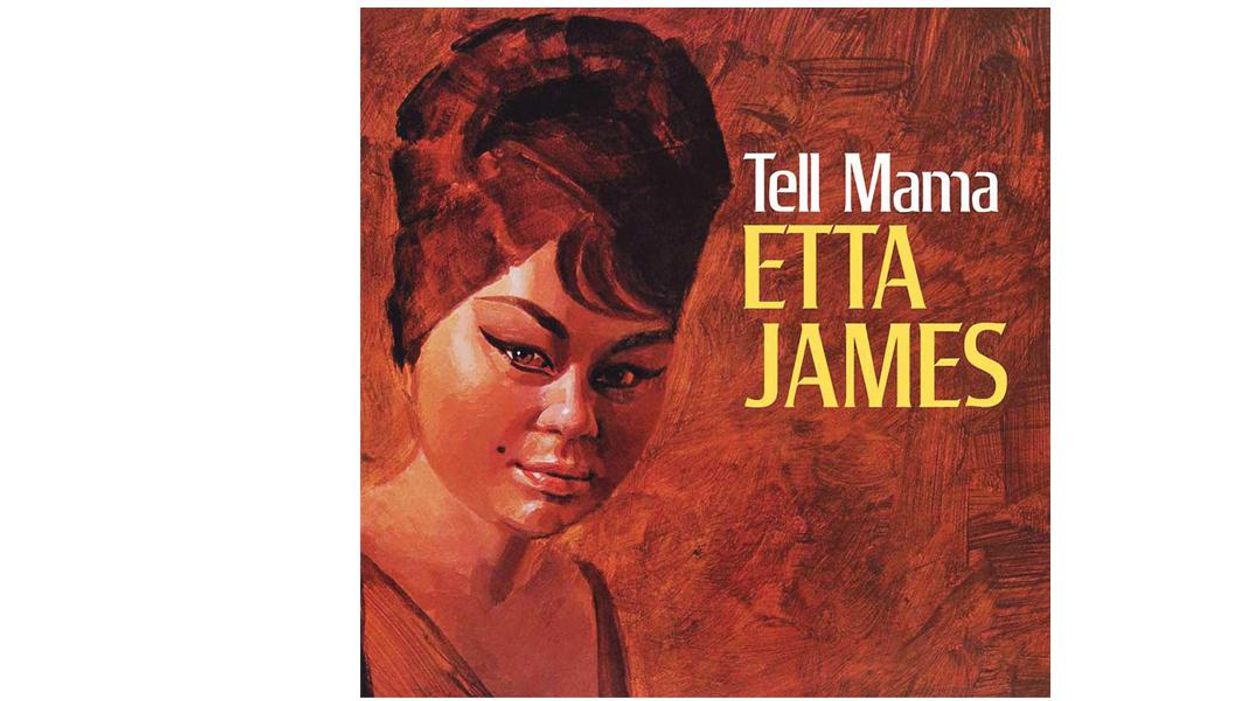
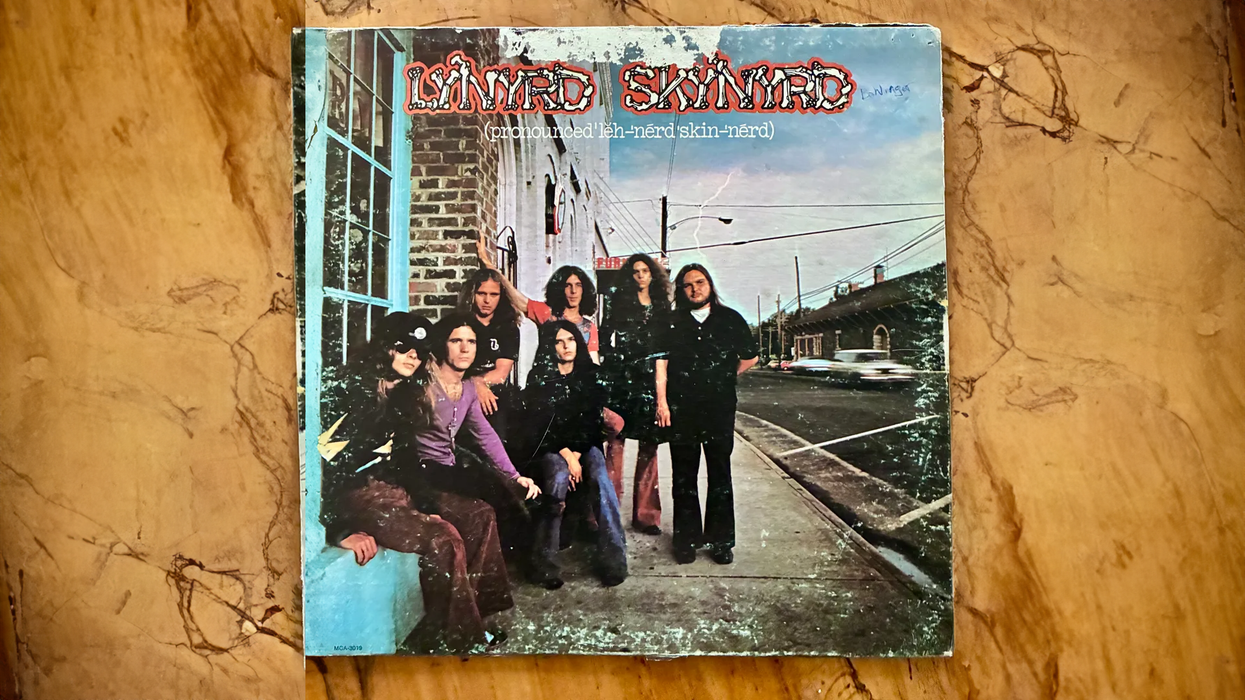

![Rig Rundown: John 5 [2026]](https://www.premierguitar.com/media-library/youtube.jpg?id=62681883&width=1245&height=700&quality=70&coordinates=0%2C45%2C0%2C45)

